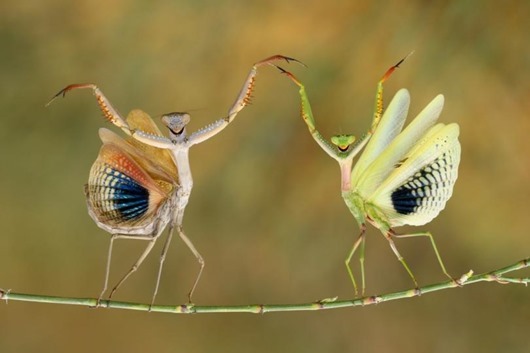"…in victory, you deserve Champagne, in defeat, you need it"
~ Napoleon Bonaparte
I’m still a magpie. If it glitters,
I want it, no matter
the cost—
I don’t connect the bangle
I buy online to a gold
mine’s cyanide heap
leaching, or the made-
with-fracked-gas plastics
that I throw in the trash
to the survivor in an as-yet-
unnamed epoch
who’ll sniff the fossil
bones of a predator
unknown to it, though
the skull that it licks
will likely be ours,
and even if this creature
resembles the rat-size
mammal that evolved when
dinosaurs died, by what blood
chemistry will it breathe?
Macdonald challenged Mr Bowtell after he said the NSW Government had left the state 'in limbo' by deliberately 'letting cases soar' when the public was largely unvaccinated.
'These were the consequences of a plan that was assembled in secret,' Professor Bowtell said.
The professor also said the 'plan' was put together without consulting 'the people or the parliament'.
A Cure for Government Incompetence | City Journal
As the Delta variant reminds us, it is too early to declare victory over the virus; there may yet be unpleasant surprises. A neighbor, overweight and over 80, has refused vaccination on the grounds that, having isolated himself, he sees no one who might infect him with the virus, that his diet is healthy, that the vaccine might not be effective against new variants (whose emergence, he believes, it might encourage), and that the long-term effects of the vaccines are unknown. No one, he says, can be certain how long the immunity that the vaccines induce lasts. And there will be other viruses, apart from the Covid variants.
Well, I’m not overweight, but I am on the cusp of 80, and I’m with this. I am not an anto-vaxxer. I made sure to get vaccinated against shingles. But my immune has been very, very good to me, and don’t want to mess with it. So far as I can tell, none of the Covid vaccines have been put through the rigorous trials that vaccines are usually put through. And exactly do people who have been vaccinated get Covid, as has happened to Jesse Jackson. The vaccinated, apparently, can transmit the disease to others. (My wife has been vaccinated, but I recently tested negative. I don’t have it and have not had it.) Dalrymple — who is physician — may think his government has handled this well, but what I have seen in this country is politicians taking advantage of the virus to satisfy their inner despot, helped along by too many servile and credulous citizens.
When we say pickles, we often mean pickled cucumbers. But any number of vegetables (or meat, or eggs) can be preserved in a solution of vinegar or salt brine. While the process of pickling foods goes back into antiquity, it became very handy for sailors during the Age of Exploration.
The history of pickles is full of anecdotes which you can see, or watch in a video, at Mental Floss.
A Better Place
Why the euphemisms? My father did not “pass.” Neither did he “depart.” He died
REPORTERS REMEMBER COVERING THE 9/11 ATTACKS (Video):
Over on MSNBC’s Morning Joe, co-host Willie Geist struggled to talk about losing neighbors and close family friends in the attacks, though poignantly told of his then-pregnant sister-in-law narrowly escaping the twin towers and his now-19-year-old nephew just entering his sophomore year of college. Fellow co-host Mika Brzezinski described how she had just started a new job working for CBS News in New York on that fateful day.
Later in the day, CNN’s John King remembered covering the White House on September 11th, 2001 and how “staff and reporters were ordered to evacuate, told to run.” Back on MSNBC, anchor Andrea Mitchell recalled: “At a time before social media, Americans were transfixed by watching it live on television. Were we all bound together by broadcasters…”
A clip followed of late Meet the Presshost Tim Russert interviewing then-Vice President Dick Cheney just days later about how the nation would respond to the heinous acts. Cheney replied: “If you provide sanctuary to terrorists, you face the full wrath of the United States.”
Mitchell declared: “The country united behind our leaders, there was no talk of a blue or red state America after those hijackers hit New York, Washington, and Shanksville, Pennsylvania.”
But of course, while it probably sounded good to Mitchell at that moment, it obviously wasn’t true: 20 Years After 9/11: Remembering the Left’s Unhinged Reaction.
And finally, great moments in moral narcissism: Brian Stelter shares who were ‘the closest thing America had to national leaders on 9/11’ (just guess):

In 19th-century England, a young writer named Mary Ann Evans assumed the pen name George Eliot and began publishing novels that were acclaimed for their realistic character development and compelling plotlines. This quote (originally published with slightly different wording) is from her fourth major work, “Middlemarch,” which is widely considered to be unsurpassed among novels of the Victorian age. The line was picked up and disseminated with slight variations appearing in subsequent publications, but the sentiment remains consistent: To be of service to the people in our lives is one of the most important things we can do with our time.
